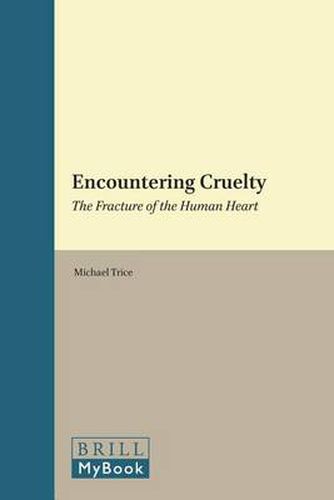Readings Newsletter
Become a Readings Member to make your shopping experience even easier.
Sign in or sign up for free!
You’re not far away from qualifying for FREE standard shipping within Australia
You’ve qualified for FREE standard shipping within Australia
The cart is loading…






Interest in recent years in reconciliation and conflict transformation has witnessed a great deal of attention to building a future through forgiveness and preventative measures in order to impede egregious wrongdoing. This effort for a reconciled future is absent reflection on the nature of cruelty. Cruelty has always been apparent in massive acts of wrongdoing and yet is repeatedly concealed in our assessment of the acts themselves. This book is a theologically honest and deep-structure exploration of cruelty in its personal, communal and institutional encounters in human life. Drawing on Nietzsche’s challenge of cruelty to the western tradition, the work offers a comprehensive study of how cruelty undermines care, trust, respect and justice - all those elements of human reciprocity that mark our lives as interdependent beings. The work concludes with a tightly written Epilogue on interpreting the theological meaning and accessibility of reconciliation today.
$9.00 standard shipping within Australia
FREE standard shipping within Australia for orders over $100.00
Express & International shipping calculated at checkout
Interest in recent years in reconciliation and conflict transformation has witnessed a great deal of attention to building a future through forgiveness and preventative measures in order to impede egregious wrongdoing. This effort for a reconciled future is absent reflection on the nature of cruelty. Cruelty has always been apparent in massive acts of wrongdoing and yet is repeatedly concealed in our assessment of the acts themselves. This book is a theologically honest and deep-structure exploration of cruelty in its personal, communal and institutional encounters in human life. Drawing on Nietzsche’s challenge of cruelty to the western tradition, the work offers a comprehensive study of how cruelty undermines care, trust, respect and justice - all those elements of human reciprocity that mark our lives as interdependent beings. The work concludes with a tightly written Epilogue on interpreting the theological meaning and accessibility of reconciliation today.